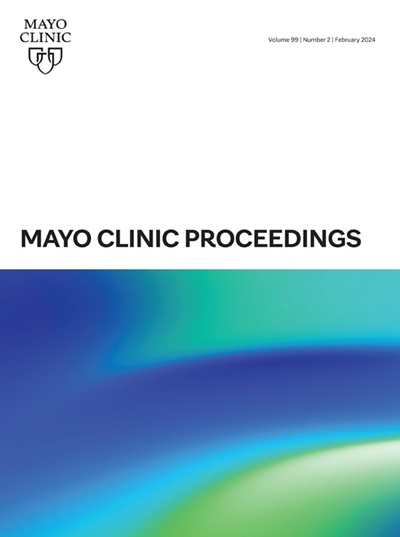Association of Plasma Omega-3 Levels With Incident Heart Failure and Related Mortalities
IF 6.9
2区 医学
Q1 MEDICINE, GENERAL & INTERNAL
引用次数: 0
Abstract
Objective
To investigate the association between plasma omega-3 levels and incident heart failure (HF) and to examine their relationship with total and cardiovascular (CV) mortality among patients with preexisting HF.
Patients and Methods
The UK Biobank is an ongoing prospective cohort study of individuals recruited in the United Kingdom between April 1, 2007, and December 31. 2010. We used Cox proportional hazards models to predict incident HF in those without baseline HF and total and CV mortality in those with baseline HF, all as a function of baseline plasma omega-3 levels.
Results
In participants without HF at baseline (n=271,794), a generally linear inverse association was observed between omega-3 levels and incident HF during a median follow-up of 13.7 years. The risk was 21% lower in the highest quintile of omega-3 compared with the lowest quintile (hazard ratio, 0.79; 95% CI, 0.74 to 0.84; P<.001) in multivariable models. In parallel models in participants with prevalent HF (n=1239), risk for all-cause and CV mortality were both reduced by approximately 50% comparing top to bottom omega-3 quintiles (hazard ratio, 0.53; 95% CI, 0.33 to 0.86; and hazard ratio, 0.50; 95% CI, 0.31 to 0.79, respectively; both P<.01).
Conclusion
Higher plasma levels of marine omega-3 fatty acids were associated with a lower incidence of HF. Furthermore, among patients with preexisting HF, higher omega-3 levels were associated with lower risks of all-cause mortality and CV mortality. These findings suggest that increasing plasma omega-3 levels, whether by diet or supplementation, could reduce both risk for development of HF and death in those with prevalent HF.
血浆Omega-3水平与心力衰竭和相关死亡率的关系
目的:探讨血浆omega-3水平与心力衰竭(HF)的关系,并探讨其与既往心力衰竭患者总死亡率和心血管死亡率(CV)的关系。患者和方法:英国生物银行是一项正在进行的前瞻性队列研究,研究对象是2007年4月1日至12月31日在英国招募的个体。2010. 我们使用Cox比例风险模型来预测无基线HF患者的HF事件,以及基线HF患者的总死亡率和CV死亡率,所有这些都是基线血浆omega-3水平的函数。结果:在基线时无HF的参与者中(n=271,794),在中位13.7年的随访期间,观察到omega-3水平与HF发生率之间普遍呈线性负相关。omega-3含量最高的五分之一人群的风险比最低的五分之一人群低21%(风险比,0.79;95% CI, 0.74 ~ 0.84;结论:较高的血浆海洋ω -3脂肪酸水平与较低的心衰发生率相关。此外,在先前存在HF的患者中,较高的omega-3水平与较低的全因死亡率和CV死亡率相关。这些发现表明,无论是通过饮食还是补充,增加血浆中omega-3的水平都可以降低HF患者发生HF和死亡的风险。
本文章由计算机程序翻译,如有差异,请以英文原文为准。
求助全文
约1分钟内获得全文
求助全文
来源期刊

Mayo Clinic proceedings
医学-医学:内科
CiteScore
16.80
自引率
1.10%
发文量
383
审稿时长
37 days
期刊介绍:
Mayo Clinic Proceedings is a premier peer-reviewed clinical journal in general medicine. Sponsored by Mayo Clinic, it is one of the most widely read and highly cited scientific publications for physicians. Since 1926, Mayo Clinic Proceedings has continuously published articles that focus on clinical medicine and support the professional and educational needs of its readers. The journal welcomes submissions from authors worldwide and includes Nobel-prize-winning research in its content. With an Impact Factor of 8.9, Mayo Clinic Proceedings is ranked #20 out of 167 journals in the Medicine, General and Internal category, placing it in the top 12% of these journals. It invites manuscripts on clinical and laboratory medicine, health care policy and economics, medical education and ethics, and related topics.
 求助内容:
求助内容: 应助结果提醒方式:
应助结果提醒方式:


